Mobile Development
Technologies
Kotlin vs. Java - Which is better for Android App Development?
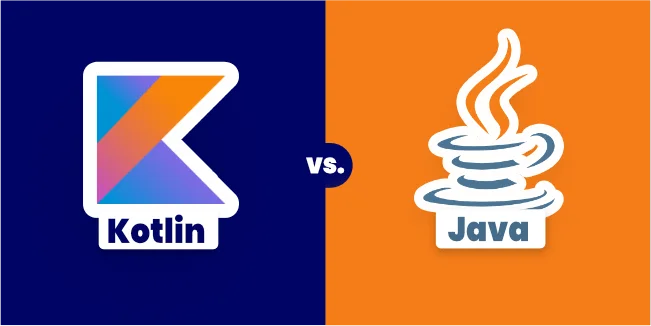
As a software development company, we have been creating successful mobile applications for our clients for many years, both for Android and iOS. We follow current trends and advise clients to choose the optimal tech stack for their projects.
Our observations show that recently Android development took place mainly in Kotlin. Both Java and Kotlin may be used to create fast, practical applications. However, Google's libraries, tools, documentation, and learning resources favor a Kotlin first approach, making it the only language for Android right now.
In this article, we compare both Android programming languages.
What is Kotlin?
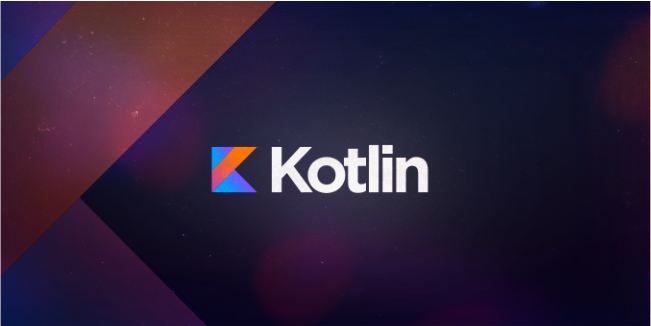
Kotlin is a statically typed programming language running on a Java virtual machine that JetBrains developers mainly develop. The name of the language comes from the island of Kotlin near St. Petersburg. Kotlin is designed to be fully interoperable with the languages running on the Java Virtual Machine. Kotlin is a free, open-source for Android that combines object-oriented and functional programming features. It is focused on interoperability, safety, clarity, and tooling support.
In July 2011, JetBrains unveiled the Kotlin project, a new language for JVM. Kotlin originated at JetBrains in 2010 and has been open source since 2012.
JetBrains lead developer Dmitry Jemerov stated that most languages did not have the features they needed, except Scala, which compiles too slowly for Kotlin's developers. One of the mentioned goals of the language is the compilation time at the Java level.
Kotlin was designed as an industrial, object-oriented language fully interoperable with code written in Java. It allows companies to gradually migrate the Java codebase to Kotlin by introducing, among others, elimination of reference errors (null-pointer safety), function extension, or infix notation.
What is Java?
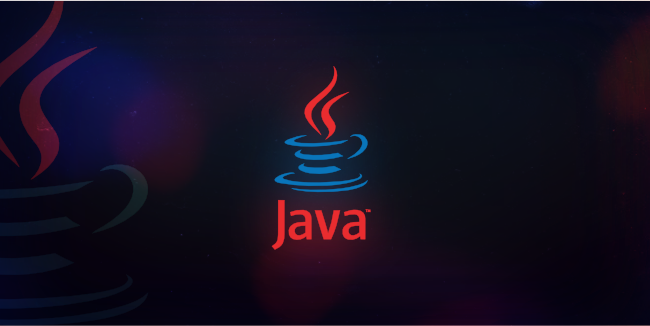
Java was created in 1995 by a working group led by James Gosling of Sun Microsystems (which was bought by Oracle in 2009). It's an open-source language, class-based, general-purpose, object-oriented technology. Java is a multiplatform language that works on most devices, OSes, and servers. Java is a language for creating source programs compiled to bytecode, a form executed by a virtual machine. The language is characterized by strong typing. Its basic concepts were taken from Smalltalk (virtual machine, memory management) and C ++ (a lot of syntax and keywords).
James Gosling, Mike Sheridan, and Patrick Naughton initiated the Java Project in June 1991. Java was initially designed for interactive television but was too advanced for the digital cable industry. Sun Microsystems released the first public implementation as Java 1.0 in 1996.
Key differences between Kotlin and Java
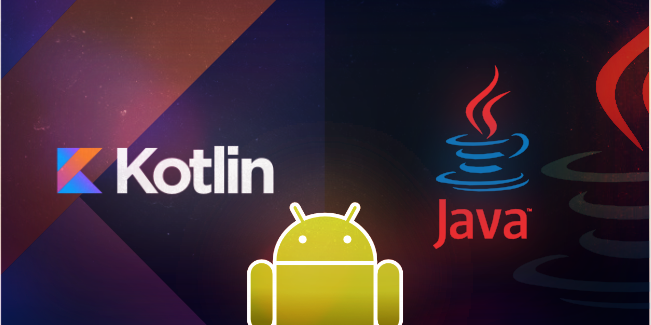
You might be wondering how Kotlin's popularity influences Java now that we have some historical context. Will Kotlin take its place? The answer isn't as simple as you'd think. There are several opposing views on the subject. Let's first explore both sides of the argument before delving deeper into their distinctions.
Extension functions
Extension functions Kotlin allows the developer to extend the functionality of classes without necessarily having to inherit from a class. There are no extension functions in Java.
Data classes
Kotlin doesn't require much effort for data classes. Java developers are needed to develop and construct a lot of components while programming.
Implicit conversions
Implicit conversions are not available in Kotlin. Java supports implicit conversions.
Null variable
In Kotlin, there are no null variables or objects. Java has a variety of null variables and classes for managing them.
Functional programming
Kotlin is a hybrid language that integrates elements of both object-oriented and functional programming. Java is a solely object-oriented programming language.
Static members
Kotlin does not allow for static members. Static members are used in Java programming.
Variables of a primitive type
Kotlin language: Variables of a primitive type are objects. Java: Variables of a primitive type aren't objects.
Constructors
In Kotlin, we may define one or more secondary constructors. Secondary constructors are not available in Java. However, it is possible to have many constructors.
Deploying the code
Kotlin code is easier to deploy. Java code is more challenging to deploy.
Null safety
Kotlin's type of system offers built-in null safety. The creation of Java and Android is primarily attributed to the NullPointer Exception.
Data Type
Unlike Java, the Kotlin language doesn't require any variable data type specifications.
Lambda expression
Kotlin supports Lambda expressions, while Java does not.
Lazy loading
Kotlin offers a Lazy-Loading feature, which isn't available in Java.
Scripting capabilities
You can employ Kotlin in your Gradle build scripts directly. Java does not include language scripting capabilities.
Modern programming concepts
Kotlin supports modern programming concepts such as delegates and extensions. OOPS is a programming concept that Java supports.
Advantage of Kotlin
Kotlin language benefits:
- You can extract one common codebase that will execute on all of them simultaneously using the Kotlin Multiplatform framework.
- Kotlin provides built-in null safety support, a godsend for Android, with so many legacy Java APIs.
- It's shorter and more expressive than Java, so there's less room for mistakes.
- User-friendly and understandable coding standards are offered.
- The layers of an extensive application may be divided into smaller components.
- Uses a lot of function types and specialized language constructs such as lambda expressions.
- Helps developers to create an extension function
- Provides a straightforward and almost automated method of creating data classes.
- Kotlin is a statically typed language that is, therefore, relatively easy to read and write.
- This programming language allows information from Java to be exchanged and utilized in a variety of ways.
- It will take you less time to write new Kotlin code.
- It's considerably easier to deploy Kotlin code and keep it running at scale.
Disadvantage of Kotlin
Kotlin programming language cons:
- It's a small community of developers, so there are few learning materials and expert help.
- Kotlin does not include a function for checked exceptions, which might result in problems.
- Compilation speed is slower than Java.
- Kotlin, being a declarative language, can sometimes produce a lot of boilerplate code in the corresponding JVM bytecode.
Advantages of Java
Java language benefits:
- Checked exceptions that improve error detecting and solving
- Detailed documentation is available.
- There are a large number of experienced developers who are eager to work.
- There are a plethora of 3rd-party libraries available.
- You may generate standard programs and reusable code with it.
- It is a multi-threaded environment in which you may execute multiple operations at the same time in software. Java enables the development of multiple threads in the background to execute lengthy tasks.
- Java performance is excellent.
- It's simple to get around your libraries.
Disadvantages of Java
Java programming language cons:
- Because of a variety of limitations, it is not particularly well suited for Android API design.
- Requires a large amount of manual effort, which raises the risk of making mistakes.
- The JIT compiler makes the program comparatively slow.
- Java is a memory-intensive and processor-intensive application.
- It doesn't support low-level programming constructs like pointers.
- Because Java does not offer delete() and free() services, you won't have any power over garbage collection.
Which is Better?
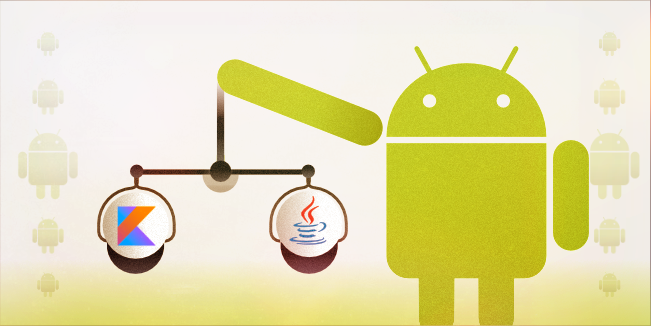
Compared to Java's numerous flaws, especially the NullPointerException problem, Kotlin appears to be the superior alternative. Java is still a critical programming language for native development for Android since the Android OS is built on it.
Kotlin is a new language developed by JetBrains that compiles to Java. Kotlin has several advantages over Android development using Java, as we've discussed, but is it superior to Java? It does have some advantages over its competition: Requires less code, deployment is lightweight and faster to compile, supports coroutines, it works with Java's libraries and frameworks, no more NullPointerException.
Nonetheless, let's not forget that Java also has its benefits: Robust coding, multi-platform that supports almost any server, operating system, or device, Android itself is built on Java, this technology has been around for a longer period; thus, it offers a bigger community and documentation, as well as an extensive ecosystem with many libraries and utilities.
It's now far more difficult to choose between Kotlin and Java, isn't it? Well, let's put things into perspective.
The rise of Kotlin as the new Android language has been rapid. Its success is because it provides crucial capabilities such as extension functions, lambda expressions, high-order functions, coroutines, and no NullPointerExceptions that make software development easier.
It's not just about the language; it's also about all of the features that come with it. Kotlin offers more functionality than Java, has better ergonomics, and is more concise. These are merely a handful of ways in which Kotlin surpasses Java as an Android programming language and is likely to dominate in the future.
Is Java on its Way Out? Everything appears to be leading toward Kotlin, and the new development tools are well aware of it! Despite this, Java still has a lot of worth and should not be overlooked.
Java is still an excellent language for general-purpose programming. Even for Android development, Java is a fantastic language, and it's easy to see why some people would pick it.
In addition, it depends on the languages that the development team is utilizing and which programming language they feel more at ease with.
These are all reasonable worries. In addition, Java has been one of the most common languages for a long time, so being replaced soon is unlikely.
Finally, comparing which language is superior isn't simple, and it's likely to lead to stimulating debates. Furthermore, there are several details to consider other the languages' distinctions, such as the companies' programming languages and how comfortable developers are with Kotlin or Java.
Summary
We understand that choosing a software language is a difficult task. Selecting the language for the project is crucial, not the other way around. In this article, we tried to show the pros and cons of both Kotlin and Java. However, if you still have an additional question, arrange a free consultation with our specialists. We have a wide portfolio of successful projects and love sharing our knowledge and experience.